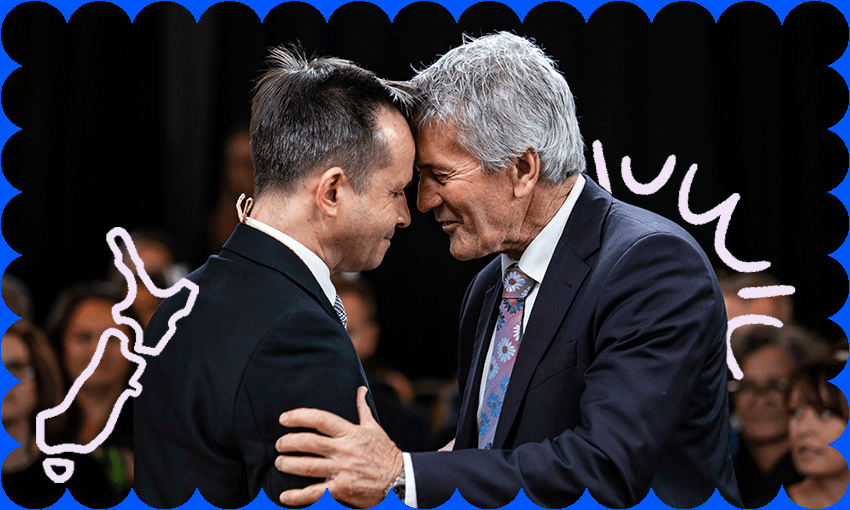New Zealand’s top trade diplomat, and chair of the Apec Senior Officials’ process, reflects on what New Zealand achieved as Apec host in 2021.
When New Zealand agreed to host Apec 2021, nine years ago this month, no one could have predicted what our host year would end up looking like.
As Covid-19 hit, the dreams of presidential jets and motorcades quickly became visions of video screens and microphones. Nevertheless, it was still a moment for New Zealand to step up, with a responsibility to help our region through the worst health and economic crises of a generation, while effectively building a plan for the next two decades.
As an organisation Apec also had a lot to prove in 2021. We committed to hosting Apec in a fully virtual format – and that wasn’t without its sceptics. It failed to secure a consensus in 2018, the leaders’ meeting was cancelled in 2019 and it experienced unprecedented disruption in 2020.
The weight of Apec’s future was saddled on the outcomes of 2021. That’s the weight of the world’s three largest economies, the home of nearly three billion people and for New Zealand, 75% of our trade.
The responsibilities of hosting are broad: bringing all 20 other economies along (it’s Apec custom to refer to members as “economies”), reflecting their interests fairly and shaping the agenda. It’s a responsibility New Zealand doesn’t get very often.
Unsurprisingly, Covid-19 dominated the 2021 agenda. We knew the response from Apec needed to be responsive to the pressures of the pandemic, and practical. We discovered that life-saving vaccines and other vital Covid-19 products could sit at borders for days or weeks, waiting to clear customs. Our work this year resulted in the establishment of “fast lanes” at the border in 16 Apec economies, which are designed to move these goods through in just hours – getting vaccines and protective equipment to the people who needed them quicker.
We also discovered that tariffs (taxes at the border) were being imposed across our region on these products. Through our collective effort, 17 Apec economies reduced or eliminated tariffs on a wide range of Covid-19-related goods – making them more affordable.
Since Apec trade ministers met in June, no new export restrictions have been introduced across the region. Importantly, all 21 Apec economies supported negotiations at the WTO for a TRIPS waiver for vaccines – an agreement to temporarily waive intellectual property rights protections for technologies needed to prevent, contain, or treat Covid-19, including vaccines and vaccine-related goods.
Throughout all this, I had my own battle with Covid-19. While travelling for meetings offshore I came down with the virus. And as one not to do things by halves, I managed to get the virus twice.
Covid-19 was a feeling like nothing I’d ever had before, and it certainly isn’t a version of the common cold. I was lucky to be double vaccinated, and could recover quickly and resume my duties as SOM Chair, albeit stuck very far away from home. I had the dubious distinction of being the first – and I hope only – Apec SOM chair to manage meetings from the other side of the world. Contracting Covid-19 myself also made what we achieved feel that much more personal.
Getting the work done has been a monumental team effort – across agencies, ministers, the prime minister and the Apec Business Advisory Council NZ – led so effectively by Rachel Taulelei. The pace of the pandemic meant we brought about an Apec first – an informal meeting of Apec leaders in the middle of the year to discuss a collective response to Covid-19. This meant two leader-level meetings in an Apec host year, which is unheard of.
When Apec leaders came together for a second time in November and agreed to the Aotearoa Plan of Action (APA), we created perhaps the true lasting legacy of our host year. The APA converts the words of the Apec vision, agreed in Malaysia last year, into reality. It is a 20-year work programme that covers everything Apec does for all Apec economies, containing a number of distinctly New Zealand elements.
Apec will now work on climate change – a giant leap for the organisation. Only 18 months ago there was no agreement to even discuss climate change in Apec. Now we have agreed to a range of initiatives, including a standstill on fossil fuels subsidies and a list of environmental services to complement Apec’s list of environmental goods. Apec is still the only inter-governmental organisation to have agreed lists –while the WTO is still negotiating similar lists some 20-years later.
New Zealand’s leadership of Apec in 2021 also helped ensure the Indigenous economy is taken seriously, impacting the 271 million Indigenous people in our region. Our challenge is to sustain this initiative going forward. This sits alongside further work to support the economic empowerment of women, and our small and medium enterprises. But these are not rhetorical flourishes, they are now built into Apec’s work plan for the next 20 years.
We have also achieved another first with the conclusion of the Indigenous Peoples Economic and Trade Partnership Arrangement. This is a first of its kind open plurilateral arrangement developed alongside our Apec hosting duties that will enable economies and Indigenous people to work effectively together. Most importantly, it puts Indigenous communities firmly at the table as co-partners with economies on the implementation of the arrangement. Since the beginning of our host year, New Zealand has worked with other Apec economies to recognise the contribution and value of the region’s Indigenous people, and this arrangement is an extension of that work. We have now invited economies from around Apec and the WTO to join New Zealand in this ground-breaking initiative.
It’s rare for New Zealand to get to play such an important role in an international forum – let alone during the biggest crisis of our generation. As one of the smallest Apec economies we should be proud of how we stood up and led through such a significant global crisis, helping our region tackle the pandemic in practical ways and laying the groundwork for a better future for everyone.


